The Caribbean Relation
A Programme inside the Framework of ARCOmadrid 2024. The Shore, the Tide, the Current: An Oceanic Caribbean
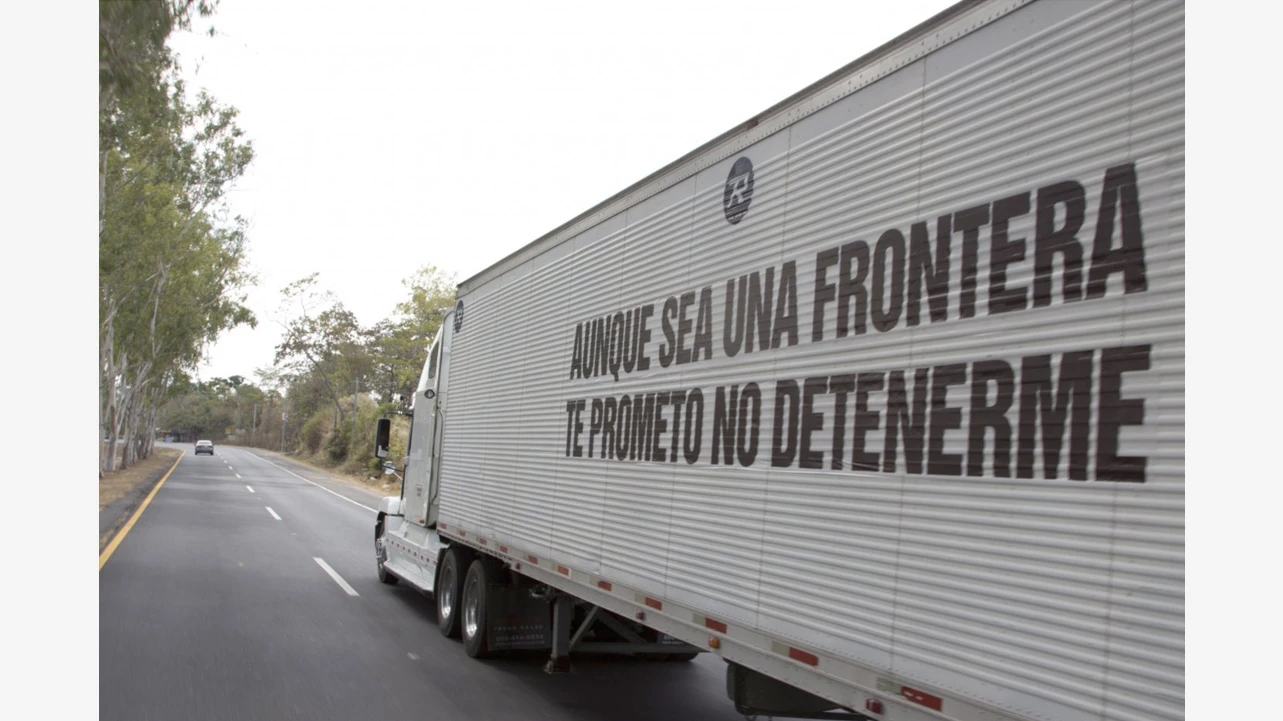
Held on 07 Mar 2024
In The Caribbean Relation, the Museo Reina Sofía develops a diverse programme inside the framework of ARCOmadrid 2024. Under the title The Shore, the Tide, the Current: An Oceanic Caribbean, this edition calls attention to the Caribbean region’s make-up of hybridisations, mixes and creolisations, a mental and geographical space traversed by the poetics of relation, in reference to the concept of Martinique thinker Édouard Glissant. Moreover, the history of the Caribbean has demonstrated its capacity to transform the violence of colonisation into an amalgam of different influences and identities projected into the world via Caribbean diaspora.
By starting out from this subject, the Museo recovers the historical figure of experimental Puerto Rican film-maker José Rodríguez Soltero, reads and dances the writings of Cuban curator Tamara Díaz Bringas, and brings proceedings to a conclusion with a party/concert propelled by DJ Valerie Brathwaite, who was born in Trinidad and Tobago and lives in Venezuela, and Toccororo, a Spanish woman with Cuban roots. In unison, it will re-open Apparatus ‘92. Can History Be Rewound?, rooms in the Museo Reins Sofía Collection centred on post-colonial art and thought, to offer a wide-ranging exhibition programme with shows on Ulla von Brandenburg, Ibon Aranberri, Antoni Tàpies and Olga de Soto.
Organised by
Museo Reina Sofía
Activities
-
From 7 to 23 March 2024 Nouvel Building, Auditorium 200
The Films of José Rodríguez Soltero: Cuir/Queer Latinx
Film Series
TicketsThe Museo recovers through this film series the work of Puerto Rican artist José Rodríguez Soltero (1943–2009), a key figure of Caribbean diaspora and the New York underground in the 1960s and 1970s. Rodríguez Soltero belonged to the same generation and social context as Jack Smith and Andy Warhol, sharing film-making methods, with the relevance of his work obscured until the restoration of his only three conserved films Jerovi (1965), Lupe (1966) and Dialogue with Che (1968), all three of which are screened in this series.
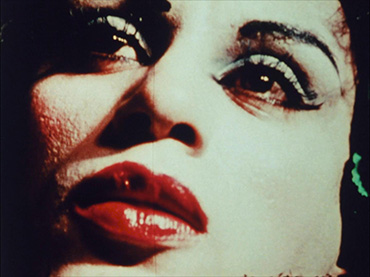
-
Saturday, 9 March 2024 Nouvel Building, Auditorium 400 and online platform
All Lives
Reading and Dancing the Texts of Tamara Díaz Bringas
Online platformThis encounter seeks to share the texts of Cuban researcher and curator Tamara Díaz Bringas (1973–2022) in the form of a collective reading and dance. Through Díaz Bringas, writing is understood as a way of looking after ourselves, to be in the world through listening and mutual understanding. The texts gathered in Todas las vidas (All Lives) [consonni, 2024] are the pretext for celebrating, in this encounter, forms of making and the networks that the curator wove in her life, situated, across almost three decades, in the specific contexts and urgencies of Cuba, Central America and Spain.
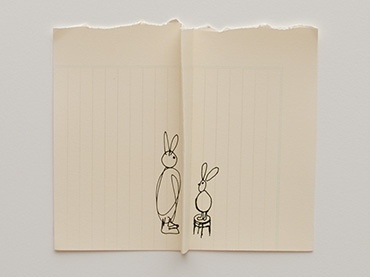
-
Saturday, 9 March 2024 Sabatini Building, Floor 1
The Shore, the Tide, the Current: An Oceanic Caribbean
ARCOmadrid 2024 Party in the Museo Reina Sofía
The Museo Reina Sofía welcomes Caribbean tides and currents, which flow through the Sabatini Building’s Garden and Cloister from 10pm until midnight as part of the ARCOmadrid 2024 closing party. Embracing the themes of this edition of the Madrid art fair, The Shore, the Tide, the Current: An Oceanic Caribbean, DJ Valerie Brathwaite and Toccororo unfurl a sound-based connection between distant shores, and with influences and approaches that are as interesting as they are different.
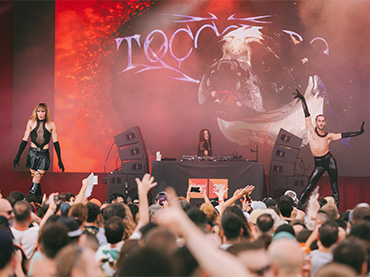
Collectionn
-
Apparatus ‘92. Can History Be Rewound?
The Museo re-opens the rooms of the Collection centred on the 1990s, a period in which many of the changes that explain the current world order took place. In Spain, the events and celebrations of 1992 (Expo ‘92 in Seville, the Barcelona Olympic Games, Madrid as European Capital of Culture), six years after joining the European Union — in what was considered an example of a successful integration into modernity — reflected enthusiasm that concealed the weakness of an economic structure partly underpinned by a real estate bubble; its blowout in 2008 marked the beginning of the end of globalising euphoria.
Expo ‘92 in Seville was an event conceived to celebrate Spain’s categorical arrival into modernity and served to elucidate the light and darkness of Iberian colonial legacy, as well as enabling an analysis of the inherent relationship that exists between conquest and violence. Violence defined by extractivism, by the plundering of history and by the logics of colonialist dispossession, including the exploitation of resources and people, and conflicts of gender and race.
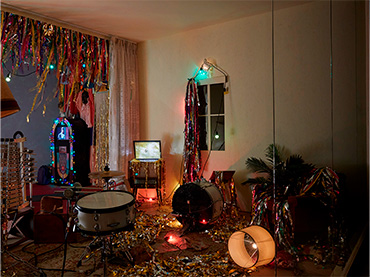
Exhibitions
-
Until 10 March 2024 Retiro Park, Palacio de Velázquez
Ulla von Brandenburg
One-sequence Spaces
The work of artist Ulla von Brandenburg (Karlsruhe, Germany, 1974) is shaped by her early training as a stage designer and a brief stint in the world of theatre. For this exhibition the artist develops a series of textile installations which, as backdrops, can be crossed by openings, thereby blurring the limits between inside and outside. The textile geometric forms are shown alongside three films by the artist to accompany the visual work, expanding information, providing nuances and inviting the spectator to move through this new scenography of entwined spaces and histories.
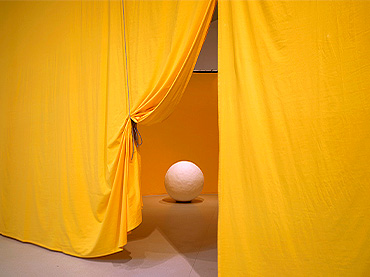
-
Until 11 March 2024 Sabatini Building, Floor 3
Ibon Aranberri
Partial View
TicketsThis anthological exhibition devoted to Ibon Aranberri (Itziar-Deba, 1969) assembles a selection of works spanning from the 1990s to the present, revisiting different projects and placing the stress primarily on the evolution of the artistic language he has employed across his career. Aranberri’s body of work is characterised by its incompleteness, and by generating materials and situations of different types which expand the artistic process. His practice encompasses the co-existence of documentary materials resulting from research processes with a corpus of images and sculptural forms which, seemingly veiled or inaccessible, establish a correlation between their abstract quality and the narrative materiality of documents.
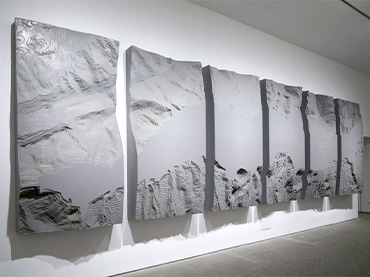
-
Until 24 June 2024 Sabatini Building, Floor 4
Antoni Tàpies
The Practice of Art
TicketsTo mark the centenary of the birth of Antoni Tàpies (1923–2012), the Museo Reina Sofía and Fundació Antoni Tàpies have organised one of the most complete exhibitions on the artist to date, spanning over 220 works from museums and private collections from around the world to shine a light on his career arc from 1943 to 2012. Through the selected works, some of which have not been shown together for many years, this exhibition foregrounds the prolific career of Tàpies, resituating his work and influences in recent art history.
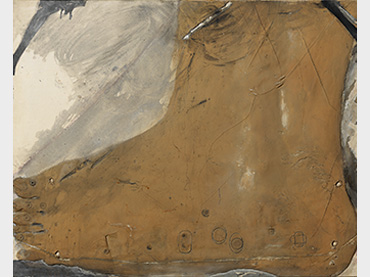
-
Until 1 July 2024 Sabatini Building, Space 1
Olga de Soto
Reconstruction of a Danse Macabre
TicketsInside the framework of the Fissures programme, choreographer, dancer and dance researcher Olga de Soto (Valencia, 1972) revisits and expands upon a research project undertaken over more than a decade ago on Der grüne Tisch (The Green Table, 1932), an anti-war piece by German choreographer Kurt Jooss and one of the foundational works in the history of contemporary dance. With the project, De Soto endeavours to explore the lasting impact on audiences who have seen Der grüne Tisch and on the dancers who have performed it, with the aim of generating an archive of testimonies stretching across sixty-seven hours and comprising four languages, six countries and two continents. In conjunction with the opening, an encounter is scheduled for Tuesday, 27 February between the artist and the show’s curator, Lola Hinojosa, under the title Behind The Green Table of Kurt Jooss.
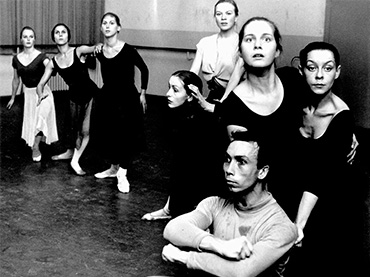
Radio RRS
-
Podcast
Alexandra T. Vázquez
Migration and Sound
Listen to podcastAlexandra T. Vázquez (Miami, 1976) is a researcher, writer and associate professor at NYU’s Tisch School of the Arts. Her work, framed within so-called performance studies, is centred on music, Caribbean aesthetics and criticism, and Latin American and US Latina studies. This podcast contains her testimony following a conversation on her two books published to date: Listening in Detail: Performances of Cuban Music (Duke University Press, 2013) and The Florida Room (Duke University Press, 2022).
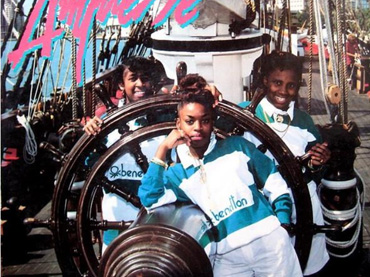
-
Podcast
‘92 Ends it All
Putting Out the Fuses
Listen to podcastComposed as a sound collage, this podcast, produced in 2022, includes a voice mixed with different songs and sound resources, resulting from a research project which began two years previously and echoes the events held in 1992 to mark the five hundredth anniversary of Spain’s colonial legacy. Therefore, this podcast is made in relation to the rooms of the Museo Reina Sofía Collection under the title Apparatus ‘92. Can History Be Rewound?
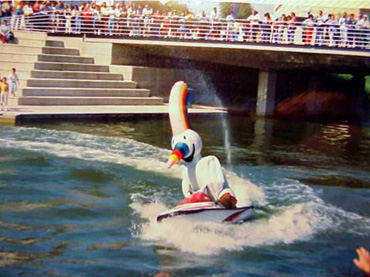
Más actividades
![Tracey Rose, The Black Sun Black Star and Moon [La luna estrella negro y negro sol], 2014.](https://recursos.museoreinasofia.es/styles/small_landscape/public/Obra/AD07091_2.jpg.webp)
On Black Study: Towards a Black Poethics of Contamination
Monday 27, Tuesday 28 and Wednesday 29 of April, 2026 – 16:00 h
The seminar On Black Study: Towards a Black Poethics of Contamination proposes Black Study as a critical and methodological practice that has emerged in and against racial capitalism, colonial modernity and institutional capture. Framed through what the invited researcher and practitioner Ishy Pryce-Parchment terms a Black poethics of contamination, the seminar considers what it might mean to think Blackness (and therefore Black Study) as contagious, diffuse and spreadable matter. To do so, it enacts a constellation of diasporic methodologies and black aesthetic practices that harbor “contamination” -ideas that travel through texts, geographies, bodies and histories- as a method and as a condition.
If Blackness enters Western modernity from the position of the Middle Passage and its afterlives, it also names a condition from which alternative modes of being, knowing and relating are continually forged. From within this errant boundarylessness, Black creative-intellectual practice unfolds as what might be called a history of touches: transmissions, residues and socialities that unsettle the fantasy of pure or self-contained knowledge.
Situated within Black radical aesthetics, Black feminist theory and diasporic poetics, the seminar traces a genealogy of Black Study not as an object of analysis but as methodological propositions that continue to shape contemporary aesthetic and political life. Against mastery as the horizon of study, the group shifts attention from what we know to how we know. It foregrounds creative Black methodological practices—fahima ife’s anindex (via Fred Moten), Katherine McKittrick’s expansive use of the footnote, citation as relational and loving labour, the aesthetics of Black miscellanea, and Christina Sharpe’s practices of annotation—as procedures that disorganise dominant regimes of knowledge. In this sense, Black Study is approached not as a discrete academic field but as a feel for knowing and knowledge: a constellation of insurgent practices—reading, gathering, listening, annotating, refusing, world-making��—that operate both within and beyond the university.
The study sessions propose to experiment with form in order to embrace how ‘black people have always used interdisciplinary methodologies to explain, explore, and story the world.’ Through engagements with thinkers and practitioners such as Katherine McKittrick, C.L.R. James, Sylvia Wynter, Christina Sharpe, Fred Moten, Tina Campt, Hilton Als, John Akomfrah, fahima ife and Dionne Brand, we ask: What might it mean to study together, incompletely and without recourse to individuation? How might aesthetic practice function as a poethical intervention in the ongoing work of what Sylvia Wynter calls the practice of doing humanness?

Intergenerationality
Thursday, 9 April 2026 – 5:30pm
This series is organised by equipoMotor, a group of teenagers, young people and older people who have participated in the Museo Reina Sofía’s previous community education projects, and is structured around four themed blocks that pivot on the monstrous.
The third session gazes at film as a place from which to dismantle the idea of one sole history and one sole time. From a decolonial and queer perspective, it explores films which break the straight line of past-present-future, which mix memories, slow progress and leave space for rhythms which customarily make no room for official accounts. Here the images open cracks through which bodies, voices and affects appear, disrupting archive and questioning who narrates, and from where and for whom. The proposal is at once simple and ambitious: use film to imagine other modes of remembering, belonging and projecting futures we have not yet been able to live.

Remedios Zafra
Thursday March 19, 2026 - 19:00 h
The José Luis Brea Chair, dedicated to reflecting on the image and the epistemology of visuality in contemporary culture, opens its program with an inaugural lecture by essayist and thinker Remedios Zafra.
“That the contemporary antifeminist upsurge is constructed as an anti-intellectual drive is no coincidence; the two feed into one another. To advance a reactionary discourse that defends inequality, it is necessary to challenge gender studies and gender-equality policies, but also to devalue the very foundations of knowledge in which these have been most intensely developed over recent decades—while also undermining their institutional support: universities, art and research centers, and academic culture.
Feminism has been deeply linked to the affirmation of the most committed humanist thought. Periods of enlightenment and moments of transition toward more just social forms—sustained by education—have been when feminist demands have emerged most strongly. Awareness and achievements in equality increase when education plays a leading social role; thus, devaluing intellectual work also contributes to harming feminism, and vice versa, insofar as the bond between knowledge and feminism is not only conceptual and historical, but also intimate and political.
Today, antifeminism is used globally as the symbolic adhesive of far-right movements, in parallel with the devaluation of forms of knowledge emerging from the university and from science—mistreated by hoaxes and disinformation on social networks and through the spectacularization of life mediated by screens. These are consequences bound up with the primacy of a scopic value that for some time has been denigrating thought and positioning what is most seen as what is most valuable within the normalized mediation of technology. This inertia coexists with techno-libertarian proclamations that reactivate a patriarchy that uses the resentment of many men as a seductive and cohesive force to preserve and inflame privileges in the new world as techno-scenario.
This lecture will address this epochal context, delving into the synchronicity of these upsurges through an additional parallel between forms of patriarchal domination and techno-labor domination. A parallel in which feminism and intellectual work are both being harmed, while also sending signals that in both lie emancipatory responses to today’s reactionary turns and the neutralization of critique. This consonance would also speak to how the perverse patriarchal basis that turns women into sustainers of their own subordination finds its equivalent in the encouraged self-exploitation of cultural workers; in the legitimation of affective capital and symbolic capital as sufficient forms of payment; in the blurring of boundaries between life and work and in domestic isolation; or in the pressure to please and comply as an extended patriarchal form—today linked to the feigned enthusiasm of precarious workers, but also to technological adulation. In response to possible resistance and intellectual action, patriarchy has associated feminists with a future foretold as unhappy for them, equating “thought and consciousness” with unhappiness—where these have in fact been (and continue to be) levers of autonomy and emancipation.”
— Remedios Zafra

ARCO2045. The Future, for Now
Saturday 7, March 2026 - 9:30pm
The future, its unstable and subjective nature, and its possible scenarios are the conceptual focus of ARCOmadrid 2026. A vision of the future linked to recent memory, a flash of insight into a double-edged sword. This year's edition, as in the previous two, will once again hold its closing party at the Reina Sofia Museum. This time, the star of the show is Carles Congost (Olot, Girona, 1970), one of the artists featured in the new presentation of the Collections recently inaugurated on the 4th floor of the Sabatini Building.
Carles Congost, with his ironic and timeless gaze, is responsible for setting the tone for this imperfect future, with a DJ session accompanied by some of his works in the Cloister on the first floor of the Sabatini Building of the Museo on the night of Saturday 7 March.

27th Contemporary Art Conservation Conference
Wednesday, 4, and Thursday, 5 March 2026
The 27th Contemporary Art Conservation Conference, organised by the Museo Reina Sofía’s Department of Conservation and Restoration, with the sponsorship of the Mapfre Foundation, is held on 4 and 5 March 2026. This international encounter sets out to share and debate experience and research, open new channels of study and reflect on conservation and the professional practice of restorers.
This edition will be held with in-person and online attendance formats, occurring simultaneously, via twenty-minute interventions followed by a five-minute Q&A.